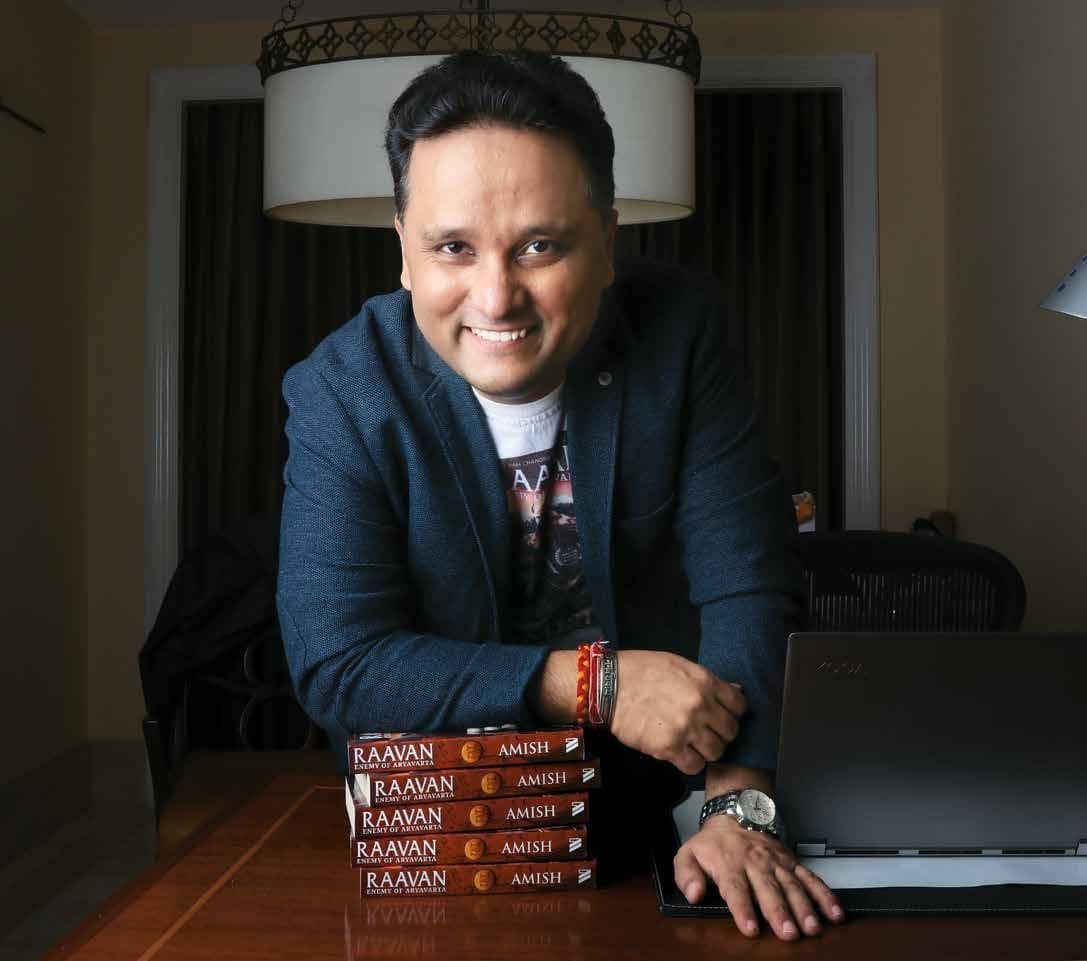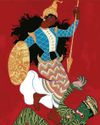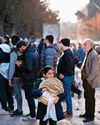Amish, the author who made mythology cool, is a bestselling Indian writer in English whose books have sold five million copies. His new book, Raavan, the third in his Ramachandra series, after Ram and Sita, is the darkest and deals with a complex character. Amish talks about villains in our stories, how India is not proud of its culture and extreme religious positions with Satish Padmanabhan. Excerpts:

There have been so many retellings of the Ramayana and yet its power remains intact. How were you swept by it? I had heard these wonderful lines—no Indian reads or hears the Ramayana for the first time. We are just born with it. We are a surviving ancient culture and these stories are in our genes, helping us explore them, learn from them, celebrate them. One reason why our culture has remained alive is our tradition of retellings—keeping the soul of the old but adding something new. We have the ideal mix of rigidity and flexibility. I learnt much I write today from my family. My grandfather was a pandit in Kashi; my parents are deeply religious.
Your new book Raavan is one of the darkest you have written. What kind of research goes into it?
I don’t do research for a particular book. Whenever I am not writing, I keep reading. I read five to six books a month, I read non-fiction and my favourite genres are mythology, spirituality, science, politics, economics. I travel a lot and learn something about local ways. For instance, in Kenya I was fascinated by the warrior culture of the Masais.
Raavan is a very dark character. But he is different from your ordinary villain. He’s a scholarly, very complex man, he is not just violent. He is a brilliant musician, poet, good dancer, a good administrator. He is a fascinating, and troubling, character to write about. Even his violence is kind of studied…he will actually behead someone and look closely at the gaping neck, how the blood is spurting out. For him that’s a path to knowledge.
In our popular culture, do you think depictions of Raavan have become monochromatic?
هذه القصة مأخوذة من طبعة July 29, 2019 من Outlook.
ابدأ النسخة التجريبية المجانية من Magzter GOLD لمدة 7 أيام للوصول إلى آلاف القصص المتميزة المنسقة وأكثر من 9,000 مجلة وصحيفة.
بالفعل مشترك ? تسجيل الدخول
هذه القصة مأخوذة من طبعة July 29, 2019 من Outlook.
ابدأ النسخة التجريبية المجانية من Magzter GOLD لمدة 7 أيام للوصول إلى آلاف القصص المتميزة المنسقة وأكثر من 9,000 مجلة وصحيفة.
بالفعل مشترك? تسجيل الدخول

Against the Loveless World
In times of war, love exists as a profound act of defiance

Soul of My Soul
What does it mean to continue to create art during a genocide?

in Dancing the Glory of Monsters
By humanising the stories of those affected by war, poverty and displacement, Buuma hopes to foster empathy and inspire action

All the President's Men
Co-author of All The President's Men and one of the two Washington Post journalists (the other was Carl Berntstein) who broke the Watergate scandal that brought down the President Richard Nixon administration in the United States in 1974, Bob Woodward's recent book War was on top of The New York Times Bestseller list, even above John Grisham.

Last Witnesses
There will be moments when the light will be cut off, but writing and the dissemination of what is written need to continue

A land of Permanent Goodbyes
\"Because what survivor hasn't had her struggle made spectacle? Don't talk about the motherland unless you know that being from Africa means waking up an afterthought in this country.

Exhausted on the Cross
\"As in Gaza, where every corpse drags a hand from the rubble to beckon to God, everything there points to awar that is over and done with.\"

My Memory is Full of ghosts
The Syrian war is a testament to the people's resilience in the face of extraordinary challenges, underscoring a failure of global responsibility

Bombs Over Burma
A 'thought revolution' is unfolding in Myanmar after a century of war

Trees for the Absentees
While stories of Syrian refugees confront the depths of human cruelty, they also show the resilience of humanity